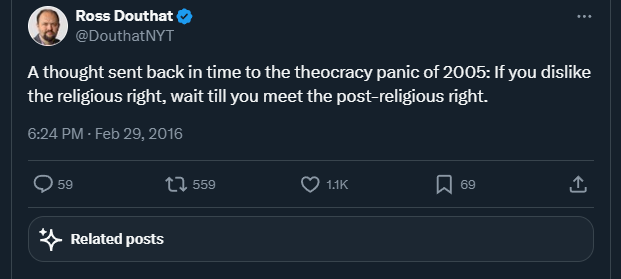Is There a Post-Religious Right on the Horizon?
If there’s a quote from the last ten years that lives in my orbit it’s this one from Ross Douthat from the New York Times. In February of 2016, he tweeted:
That statement has sort of taken on a life of its own at this point. The Week published an analysis of it back in 2017. And The American Conservative did the same that year with the title, “The Douth…




